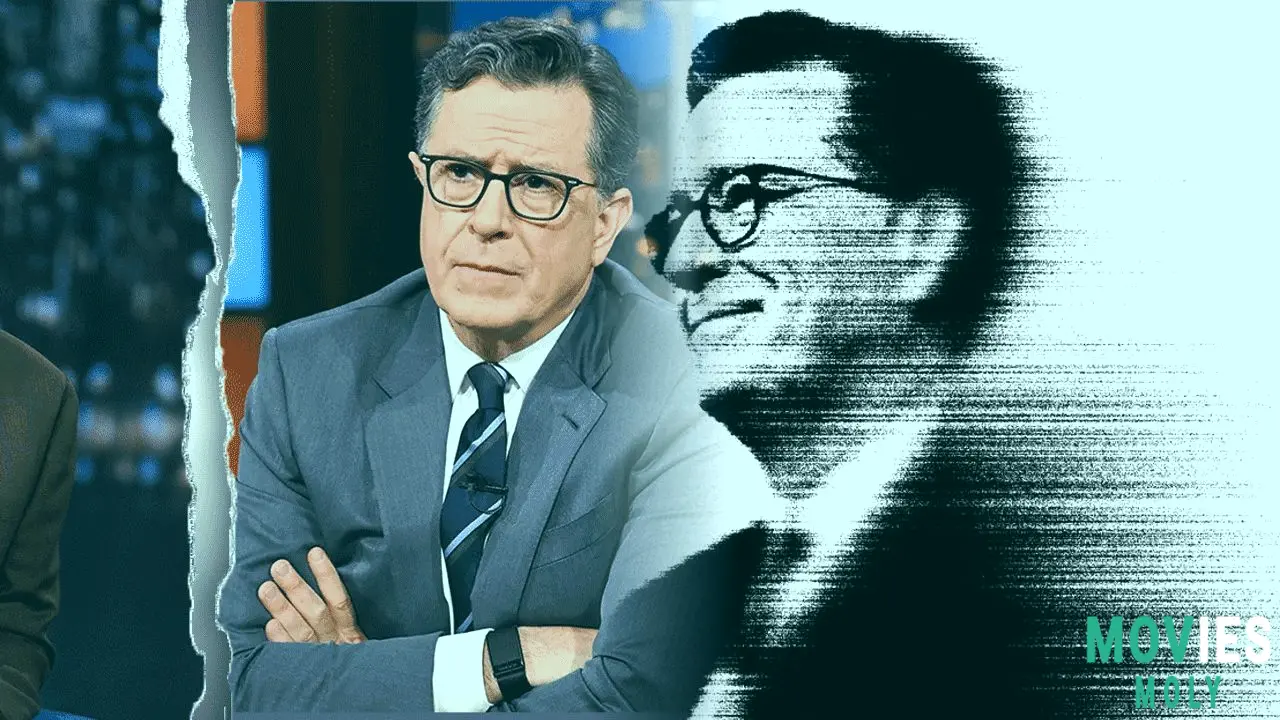The news that CBS would cancel The Late Show with Stephen Colbert in May 2026 has shocked the entertainment industry. CBS says the decision was made for business reasons, but the revelation has led to a lot of talk about the current condition and future of late-night TV. The move ends a series that has been around for more than 30 years and was once hosted by David Letterman.
Keith Olbermann, a former MSNBC anchor, instantly spoke out against the rumors, saying that Colbert's departure had nothing to do with politics. Olbermann said, "Sorry." That's not what happened here. They wouldn't be holding him until next May if it had.
The End of an Era: The Cancellation of Stephen Colbert and The Late ShowCBS acknowledged that The Late Show was canceled, saying that it was a financial choice in a tough time for late-night programming. Reports say that the show was losing almost $40 million a year. Even so, Colbert's show was the most popular late-night show on TV for nine seasons in a row, with an average of around 2.4 million viewers every episode.
However, the timing of the cancellation raised political issues. It happened just a few days after Stephen Colbert openly lambasted Paramount, CBS's parent company, for settling a lawsuit with Donald Trump for $16 million. Trump's lawsuit was about how a 60 Minutes interview with then-Vice President Kamala Harris was cut. Paramount is also trying to get the federal government to approve a merger with Skydance Media. This is something that the present administration must approve.
Senator Bernie Sanders and Senator Adam Schiff, both Democrats, spoke out about their worries. Senator Sanders wrote on X, "Stephen Colbert, the most popular late-night host and an amazing talent, is against the deal." He gets fired a few days later. Do I think this is just a coincidence? "NO." Senator Schiff said, "The public has a right to know if Paramount and CBS ended the Late Show for political reasons." And deserves more.
The mood in the industry shows that things are changing.
The end of "The Late Show" with Stephen Colbert is a big deal for late-night TV. It's evident that the industry is at a crossroads.
Why "Last Week Tonight" Is Different: John Oliver's Unique Style

Last Week Tonight with John Oliver on HBO is a different kind of late-night show from what used to be on. Oliver's show is different from everyday broadcasts because it only airs once a week and goes into great detail about certain subjects. This style lets for in-depth investigation and analysis, typically looking into topics that regular news doesn't cover. The segments from the show often get millions of views online, which means that the show reaches more people than just those who watch it on TV.
This unique strategy could help Last Week Tonight stay popular in a media world that is always evolving.
"Last Week Tonight" with John Oliver has always been a different kind of show. The way it goes deep into a topic every week might be the key to its survival at night.
The Economics and Growth of Late Night TV

Late-night TV has had trouble with money before. For many years, these shows brought in a lot of money from ads. But the media world has evolved a lot since then.
The Trump Lawsuit and Paramount's Part
The $16 million settlement that Paramount paid Donald Trump for the 60 Minutes interview caused a lot of people to react strongly. Colbert publicly called this deal a "big fat bribe" just days before his show was canceled. A lot of people wondered if the decision was only based on money or if it was also affected by companies that wanted to get regulatory permission for mergers.
A Closer Look at Colbert's Ratings
Stephen Colbert's Late Show was the most popular late-night show on network television, but the number of people who watch late-night shows in general has been going down for years. The Tonight Show with Johnny Carson used to have 17 million viewers. Colbert's show, on the other hand, had about 2.4 million viewers per episode in the last few quarters. This decline in the number of people who watch linear TV is a big deal.
How streaming affects ad revenue
Streaming services and digital platforms have made the audience less unified. People who watch TV now have a lot more options than just regular linear TV. Late-night shows get millions of views on sites like YouTube, but the money they make from ads on these videos doesn't entirely make up for the money they lose from linear TV broadcasts. For example, Colbert's show has seen a 40% decline in advertising revenue since 2018.
Is the argument over "political reasons" vs. "financial reasons" for Colbert's departure just a cover-up for bigger problems with late-night TV ratings?
How People Watch: From TV Shows to Digital Clips

There have been big changes in how individuals get their news and entertainment. Younger people, in particular, enjoy to watch short videos on sites like TikTok and YouTube. The conventional "appointment viewing" approach of late-night TV is less important now that this has changed.
The Growth of Short-Form Content
Late-night shows have changed by putting snippets and parts online so that viewers can watch them when they choose. But this change also means that viewers might not watch the whole show, which would hurt linear ratings and ad income even more.
It's not just one show disappearing; it's the whole way we get news and entertainment that is changing. #LateNightTV #StreamingWars
What Will Late Night Political Commentary Look Like in the Future?
Stephen Colbert's stint on The Late Show was known for his caustic political criticism, notably against Donald Trump. This focus helped him get good ratings, but it also made him less appealing to certain viewers.
The future of political humor on TV is unclear now that Colbert's show is over. For political analysis, shows like Last Week Tonight with John Oliver, which goes into great detail every week, may become even more significant. Jimmy Kimmel and Jimmy Fallon are two other hosts who talk about politics, but the overall effect of conventional late night shows on public conversation is shifting.
What will happen next with late-night hosts and shows?
The end of The Late Show raises doubts about whether the traditional late-night format will survive. Late Night with Seth Meyers has removed its house band, while The Tonight Show has cut back on how often it airs each week. CBS also took James Corden's The Late Late Show off the air and replaced it with a game show called After Midnight, which just ended.
New Talent and New Platforms
The sector is looking into new ways to do things, such as digital-first tactics and other platforms. Streaming firms are trying out late-night concepts, including Netflix's weekly show starring John Mulaney. This means that programming may become more flexible and less frequent.
Late-night TV has changed with the times over the years. The format has always changed, from the variety shows of the 1950s to Johnny Carson's long reign and the "late night wars" of the 1990s. The current scenario calls for another big change.
Late night has always changed, from Carson to Colbert. Now the question is, what's the next step? Digital first? Content for a certain audience?
The termination of The Late Show with Stephen Colbert is a clear evidence that the media industry is changing in a big way. The argument over whether political or financial reasons are more important goes on, but the changes in how people watch TV and how much money ads make are clear. It might not be daily network broadcasts that keep late-night TV alive, but instead series like John Oliver's Last Week Tonight that are more varied and integrate well with digital media.






